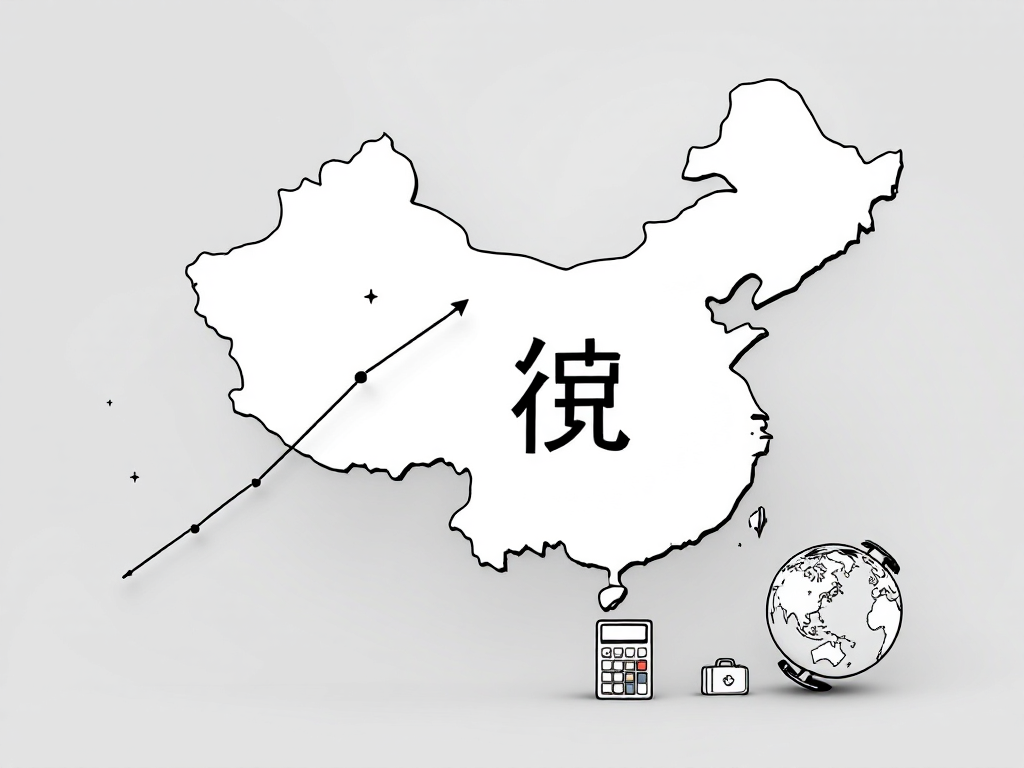Introduction: Navigating China’s Wage Landscape
Imagine you’re leading a burgeoning global enterprise, with operations stretching from the bustling streets of New York City to the dynamic markets of Beijing. You’re managing a complex web of cross-border transactions and an international workforce. Now, picture the moment when you realize your grasp of China’s minimum wage laws is crucial for your company’s compliance and financial health. This is the reality for many businesses today, navigating the intricate landscape of China’s minimum wage system.
China’s wage laws are a labyrinth of regional regulations and fluctuating standards, presenting a challenge for companies engaging in cross-border operations. Understanding and adhering to these laws is vital to maintaining compliance and optimizing cost efficiency. That’s where platforms like PayInOne come into play, offering solutions that simplify these complexities, enabling businesses to focus on growth rather than getting entangled in regulatory hurdles.
Understanding China’s Minimum Wage System
The structure of minimum wage laws in China is as diverse as the country itself. Unlike a single nationwide standard, China’s minimum wage is determined at the provincial level, with each region setting its own rates based on local economic conditions. This means that businesses operating in multiple regions must navigate a patchwork of regulations, each with its own unique requirements and expectations.
For example, as of 2025, the minimum wage in Shanghai is considerably higher than in other regions, reflecting its status as a key financial hub with a high cost of living. This regional variation can significantly impact a company’s wage bill and requires careful management to ensure compliance. Recent updates in minimum wage standards further emphasize the need for businesses to stay informed and agile in adapting to these changes.
Significance for Global Businesses
Understanding China’s local wage laws is not just a matter of compliance; it’s a strategic necessity for international companies. For businesses with global operations, the ability to navigate local wage standards is crucial for managing costs and remaining competitive. Non-compliance can lead to penalties, reputational damage, and disrupted operations.
The rise of remote work and global teams has further accentuated the need for businesses to be adept at managing diverse regulatory environments. As companies increasingly depend on talent from across the globe, understanding and adhering to local wage laws becomes pivotal in maintaining a harmonious and efficient workforce.
Challenges and Opportunities
One of the primary challenges businesses face when dealing with China’s minimum wage laws is ensuring compliance across different regions. The complex and often fluctuating nature of these regulations can lead to non-compliance, with severe financial and legal repercussions. Additionally, currency fluctuations add another layer of complexity, impacting the overall cost of hiring and maintaining a workforce.
However, these challenges also present opportunities. Companies that master the intricacies of China’s wage laws can achieve significant cost savings. By strategically positioning their operations in regions with favorable wage conditions, businesses can reduce expenses while accessing a vast pool of talent. Moreover, understanding these dynamics allows companies to be more agile, quickly adapting to changes and capitalizing on new opportunities as they arise.
Expert Insights and Best Practices
What the Experts Say
Industry leaders emphasize the importance of investing in technology and processes that streamline compliance management. “Automation tools are essential for staying on top of wage regulations,” says a leading expert from PayInOne. “They not only reduce the risk of non-compliance but also free up resources to focus on strategic growth initiatives.”
Pitfalls to Avoid
- Do: Regularly review and update your compliance strategies to reflect current regulations.
- Don’t: Rely solely on manual processes, which are prone to errors and inefficiencies.
To navigate China’s wage complexities effectively, businesses should consider implementing a comprehensive compliance checklist and leveraging automation tools. These strategies not only ensure adherence to local laws but also enhance operational efficiency.
Real-World Case Studies
Consider the case of a multinational tech company that successfully overcame wage challenges in China. Initially, they struggled with compliance across multiple regions, leading to financial strain and operational disruptions. By partnering with PayInOne, they adopted an integrated platform that automated compliance processes and provided real-time updates on regulatory changes.
This strategic shift resulted in a 20% reduction in compliance-related costs and improved operational efficiency. The company not only achieved compliance but also enhanced its ability to attract top talent from various regions, ultimately bolstering its competitive edge.

Future Outlook on Wage Regulations
Looking ahead, the landscape of wage regulations in China is poised for further evolution. Emerging technologies such as blockchain and digital payroll systems are set to redefine how businesses manage and process payments. These innovations promise greater transparency, security, and efficiency in wage management.
Additionally, future regulatory changes may introduce more standardized approaches, reducing the complexity associated with regional variations. Companies that stay informed and proactively adapt to these trends will be well-positioned to maintain competitiveness in global markets.
Conclusion and Call to Action
In conclusion, understanding and navigating China’s minimum wage system is imperative for businesses engaged in global operations. The ability to manage compliance effectively not only minimizes risks but also unlocks opportunities for cost savings and strategic growth.
We encourage you to share your experiences and insights on managing wage challenges in China. For those seeking to simplify their global operations, consider exploring how PayInOne can assist you in tackling these complexities.
Ready to simplify your global operations and tackle China’s minimum wage challenges head-on? Discover how PayInOne can help — https://payin.one/.
